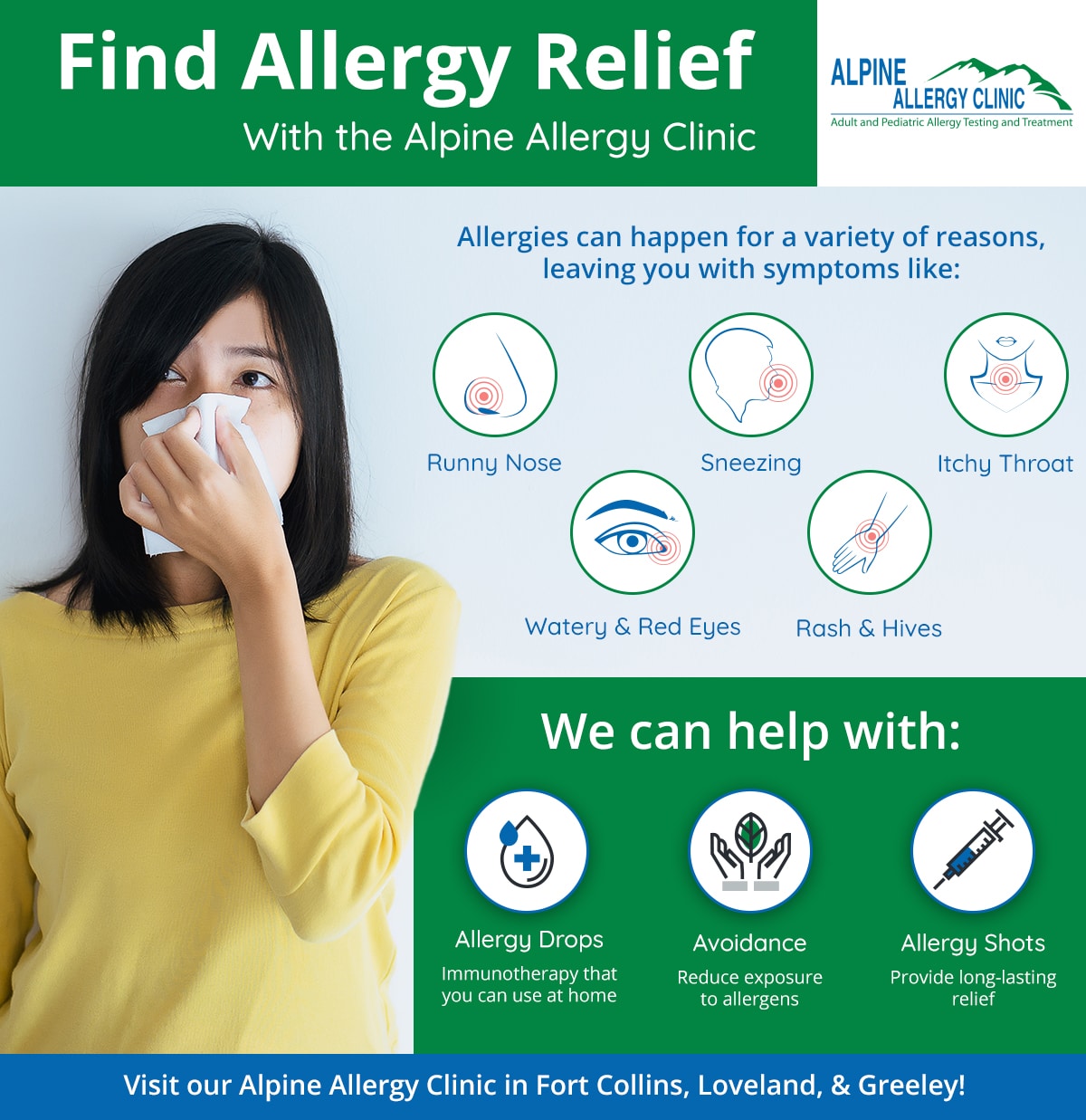While spring brings warmer weather and the ability to spend more time outside, it also can mean allergy season for many. In fact, the AAFA estimates that over 50 million Americans experience some kind of allergies during the year.
As an ear, nose, and throat clinic, we know a thing or two about finding sinus relief and treating different allergies. Visit our Alpine Allergy Clinic at Alpine Ear, Nose, & Throat in Fort Collins, Loveland, and Windsor. Contact us to schedule an appointment and learn more about how our ear, nose, and throat doctors can help you manage or improve your allergies this spring.
Allergy Treatments
Some seasonal allergies will clear up on their own, but types of allergies can persist and require treatment. No one loves toting around a box of tissues when your allergies are getting worse. That’s where allergy treatments come in.
As ear, nose, and throat doctors, we understand the different ways allergies can affect your ear, nose, and throat. From diagnosing the source of your allergies to alleviating symptoms and providing long-term support, learn more about the allergy treatments available at our clinic.
Avoiding Allergens
Allergies can come from a variety of sources, including pollen, dander, mold, food, insect bites, medicines, chemicals, and other irritants. It might sound simple, but avoidance of those allergens can help reduce your symptoms associated with that allergy.
For the most part, seasonal allergies are caused by pollen from trees, weed, grass, and other plants, making spring a prime time for these allergies to flare up. Different factors can influence the amount of pollen in the air, including the weather, rain, wind, and the growing season. You can check the pollen count for a better idea of what to expect day-to-day. You can do other things to help reduce your symptoms after exposing yourself to an allergen, including:
- Changing your clothes after you’ve been outside or around your allergen
- Limiting the activities you do outside when there is a high pollen count
- Making sure that your home or bedroom is as pollen-free as possible (e.g., regularly cleaning sheets or keeping outside things away from your pillows and blankets)
We know that it’s easier to avoid certain allergens, so if you have more severe allergies, it might be time to consider other allergy treatment options, like allergy drops and shots.
Allergy Drops
Sublingual Immunotherapy (SLIT), or allergy drops, can help desensitize your body to your allergic reactions. If we know what you’re allergic to, these allergy drops can be custom-made with small doses of what you’re allergic to. Then, at home, you can place a few drops under your tongue once a day, slowly introducing your body to that allergy.
Through those drops, you can start to boost your tolerance, reducing the symptoms you would typically get with your allergies.
Allergy Shots
While SILT goes under your tongue, Subcutaneous Immunotherapy (SCIT) is done through an injection. If you’re still not finding relief from your allergies, SCIT can provide long-term symptom relief. The injection is created to include trace amounts of your allergen. We then inject that dose into the fat under your skin, exposing your body to that allergen so it can start to develop an immunity or tolerance to that allergen.
Visit Our Alpine Allergy Clinic Today
Ready to combat your allergies this spring? Meet with an ear, nose, and throat doctor at Alpine Ear, Nose, & Throat in Fort Collins, Loveland, and Windsor! And while you’re here, make sure you follow our blog for more information about the ways our ear, nose, and throat doctor can help you throughout the year!
